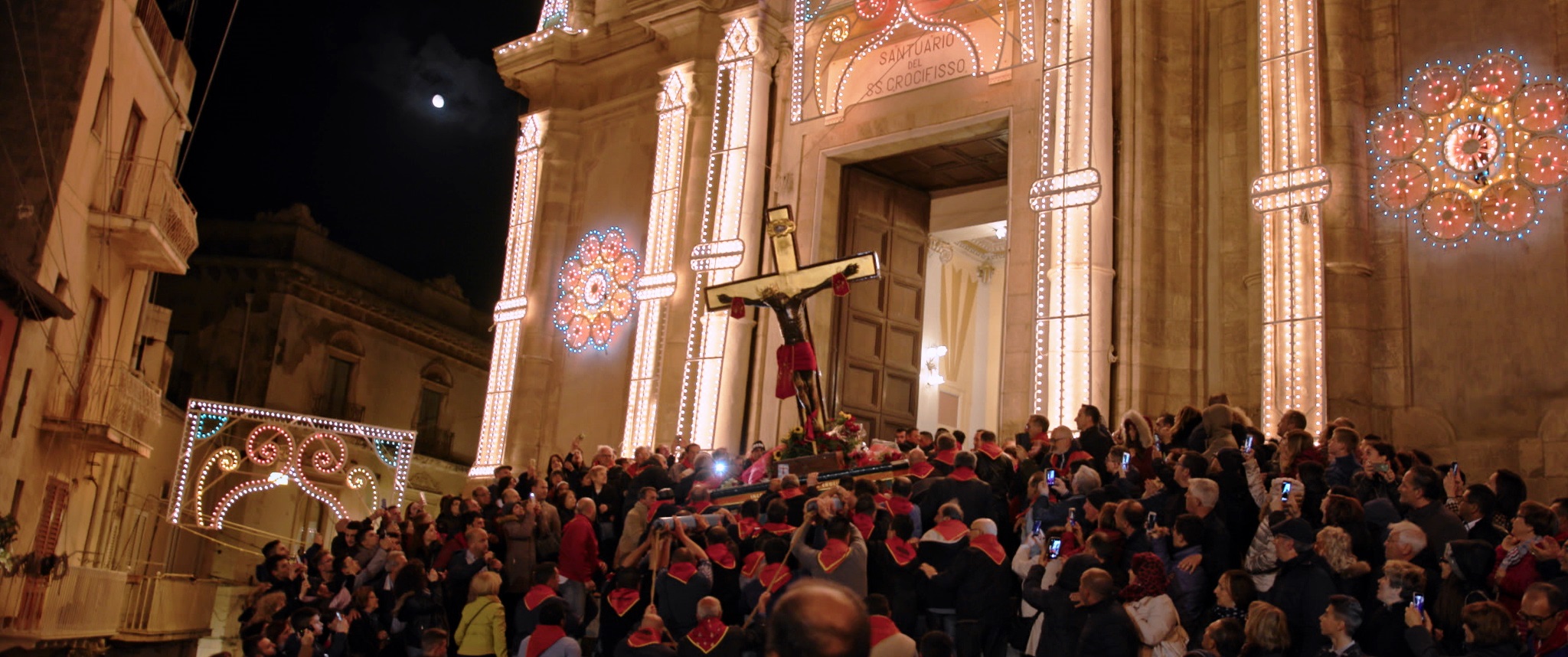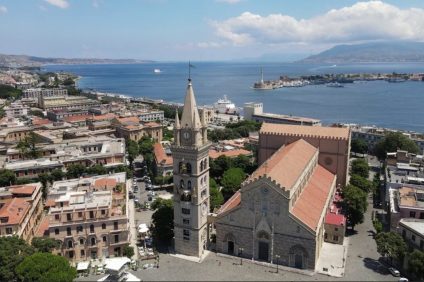In the opening bars of the film, To Black Jesus by Luca Lucchesi, two boys, are on the beach of Siculiana Marina and one tells the other (more or less) you know here they have a black Christ and they love him. They love a piece of black wood, but they don't like black people in the same way. The two boys laugh. The two boys are African. It's random. How random it is to be of any color. Being born on the other side of the Mediterranean. On the beach they underline a contradiction, one of the hundreds of contradictions that animate our society.
The themes addressed by the documentary film A Black Jesus
It is easy to say 'welcome', integration, the real sea to cross is how to make these words concrete actions, deeds. To Black Jesus is set in a town in the Agrigento area. Siculian. It is the place where Gaetano Lucchesi, Luca's father, was born. Here the director returns, now husband and father, to find parts of himself. To tell a possible future and observe what lies ahead.
In Siculiana they transformed, not without difficulty, a hotel into a reception center: Villa Sikania. A professor, Alessandro Tedesco, teaches Italian L2 to landed people. Young Africans fill the streets of the country to fill the endless empty hours of waiting with meaning.
Siculiana, the town where A Black Jesus was filmed
Siculiana it is a place of eternal returns. Many Siculians have emigrated to Northern Europe in search of work and income. In these dynamics, where fears, difficulties and small misunderstandings flourish, Edward, a 19-year-old Ghanaian boy, attends mass every evening and becomes passionate about the annual rite of the Black Christ. The feast of the Most Holy Crucifix, the procession, is a moment of deep emotion for the whole community, which he entrusts to the Saint 'to prumissa, the most intimate of desires. The ritual becomes an opportunity to mirror each other.
Edward asks and is granted permission to carry the early, the simulacrum of the Saint, a task normally entrusted to Sicilian children. In the final stages. In a riot of fire games, crowd and red handkerchiefs, Edward proceeds with the Black Christ on his shoulder. And he can't believe it. He says it to the starry sky. It's me, below.
To Prumissa we don't know what it is. A few days later Sikania is closed and he is transferred. And if so To Black Jesus ends with a question mark, leaves behind a bright trail of hope and overcomes the irony of the opening lines. Because Edward overcomes mistrust and wants to stay in Siculiana, he says so decisively.
We met the director Luca Lucchesi, who spent his holidays in Sicily. Here with his wife Hella Wenders (the film is produced by Wim Wenders) and children. Loving, relaxed and attentive. Luca does not miss a single emotion to live, in his land, with his loved ones. I think the film celebrates the value of meeting and shows different plans. We are used to seeing migrants in other contexts, especially subordinates and work. In emergency, landings, exodus. In To Black Jesus take something different. Deeply true and unsettling.
Luca Lucchesi's letter
Luca Lucchesi a few years ago, called the Siculians together with an open letter, downloadable from the website of the Municipality of Siculiana, which says in an excerpt:
For many years I have been cultivating the idea of making a film that tells Siculiana in its many aspects. Never as this summer have I felt so urgent the need to crystallize the places of memories linked to my father in a portrait. I said to myself: if not now when. I would like, with all humility, to be able to tell a year in Siculiana's life in a documentary film that has the ambition of being highly attractive to the European public.
It will not be a one-way film but a "choral" project that will give the viewer the opportunity to truly immerse themselves in the daily life of the Sicilian people, with their treasures and their difficulties, their traditions and their anger, their love for land and their history of migration, arriving and departing (...) Not a film 'about' Siculiana then, but a film 'with' Siculiana ".
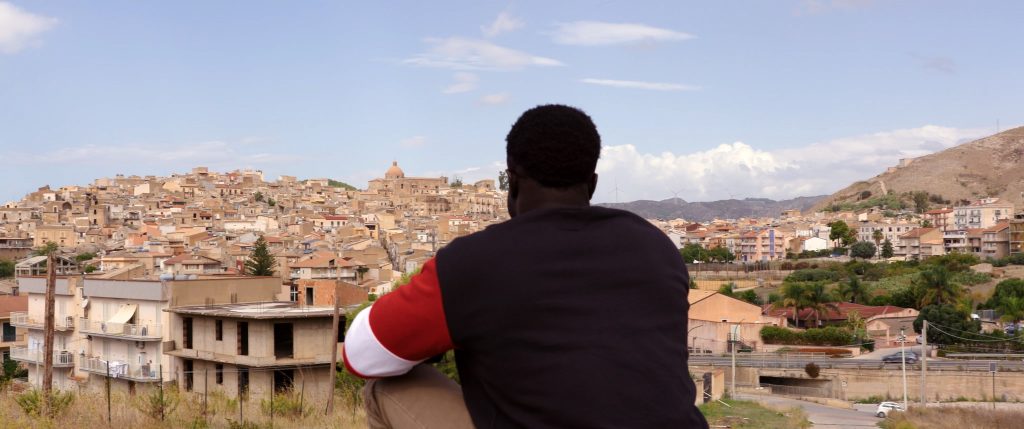
Luca Lucchesi, in the film you use a distant gaze, you tell about the expectations, the hours spent in the classroom learning Italian, the smoked cigarettes, the phone calls with the cell phone, the way of living the faith. How did this approach come about?
It's always easy to talk about a movie when it's finished. When the trial, as in the case of A Black Jesus today that you ask me this question, has long since ended. Today I would be able to give you an answer; I could lie and say that it was my goal, to slow down, to the point of freezing, time and space, to keep up with the expectations of migrants in the reception center and above all with the endangered habitat that is the form social community-country. But I'd be lying. I had no idea where this adventure would lead me. And I didn't have an approach or a guide, not even a particular point of view on the matter. I was simply witnessing something that caught my attention. And I stayed in this mood for the whole time of the shoot. Of mine I brought only curiosity and patience. Lots of patience. Perhaps this is why the gaze is different from what is expected, especially in Italy, when it comes to migration or when, more generally, issues dear to populist politics are touched upon.
Trust your eyes, an example from A Black Jesus
My gaze is mine. And I claim the right of each of us to re-appropriate our gaze, thus starting to trust our eyes again. Of course, the eyes are not enough. The next step is the mind. And then there is the belly, the heart. I am lucky to have made it my job. And this is precisely what interests me most about cinema, the ability to pass the baton to the viewer, to be able to infect him with curiosity and patience. Two fundamental weapons of peace in a divided world and in the perennial mercy of Divide et impera ... and what if we shared, with curiosity and patience, our looks and our needs, our doubts and our hopes? Wouldn't ours be a better world?
The relationship with the places we live in. Where memory and affections bind us. What did you discover about yourself during this experience?
I knew Siculiana but I didn't know the Siculians well. Thanks to the film I was able to bridge this gap. In a certain sense, now I also know my father better who had taken a lot of his character and his way of doing from Siculiana.
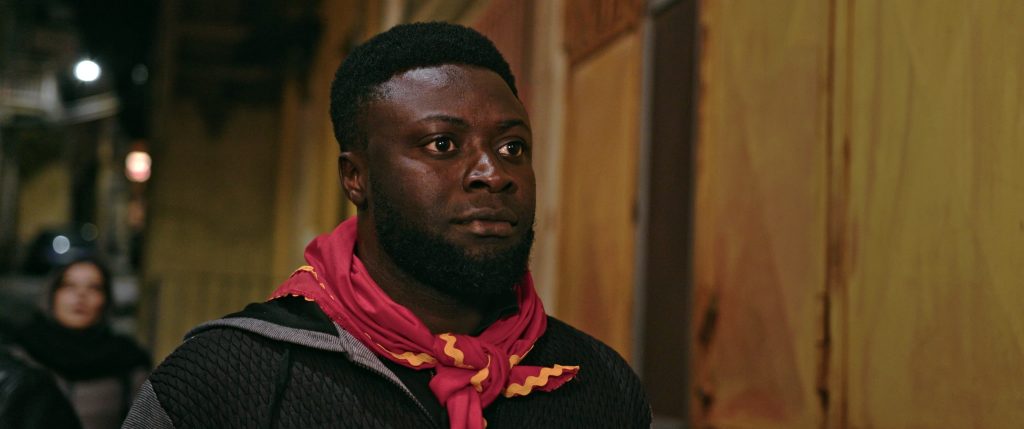
Siculiana, which is your father's country of origin, what does it mean for you?
Siculiana means a lot to me. Today more than ever. It wasn't always like that. Today I can say that Siculiana is the country that was needed for me, quoting Pavese. And not for the sake of leaving, but for the constant desire to stay there, return, continue to discover it. I would also like to gradually contribute to the change in Siculiana. If in ten years, or who knows when, I really return to live there, I would like it to be a cleaner, more environmentally friendly country, with more greenery and less concrete. How much concrete in Siculiana… And of course I would like Siculiana to be filled with young girls and boys, from every nation and country, from every culture and religion… I would like it to become a country rich in diversity.
Now you live the condition of Italian, Sicilian, naturalized in Berlin. What do you miss about Italy? How do you see it from the outside?
I miss Italy a lot, but obviously Sicily more. Above all, I miss the simplicity with which it is possible to establish human relationships, even those of a certain solidity. In Berlin it is not the same thing. At least I've had this experience so far. Friendships are difficult to build and it is even more difficult to cultivate them. But maybe it's my thing. It is true that every time I am in Sicily, especially in summer, I always meet new people, I make friends, my social life undergoes an extraordinary acceleration.
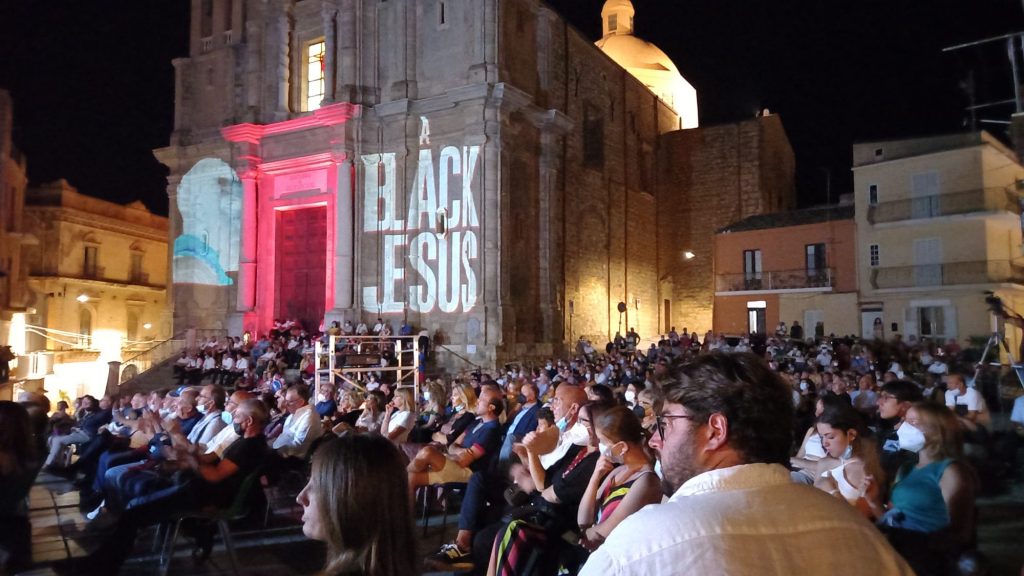
The event evening of Siculiana
The film To Black Jesus was screened in an evening event in Piazza Umberto, on July 25, in Siculiana. Crowded as far as the Covid-19 distancing allows. Organized as part of the Mediterranean Summer, a calendar of cultural initiatives strongly desired by the municipal administration and by the Mayor Peppe Zambiente. The neat chairs that started from the church square. The country's band was not missing either.
The Siculians have had the opportunity to meet again. That is to see yourself with new eyes. And they weren't afraid. On the contrary. Edward Zorobah received his honorary citizenship. He was awarded the Gaetano Lucchesi prize. Just set up by the director's family to encourage deserving projects and people. A good start. The bright trail, continues to shine.

